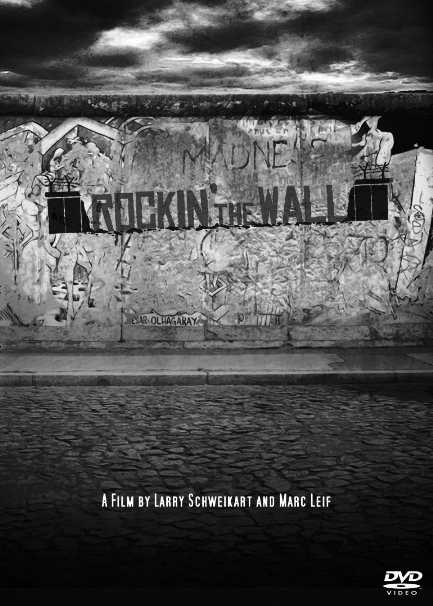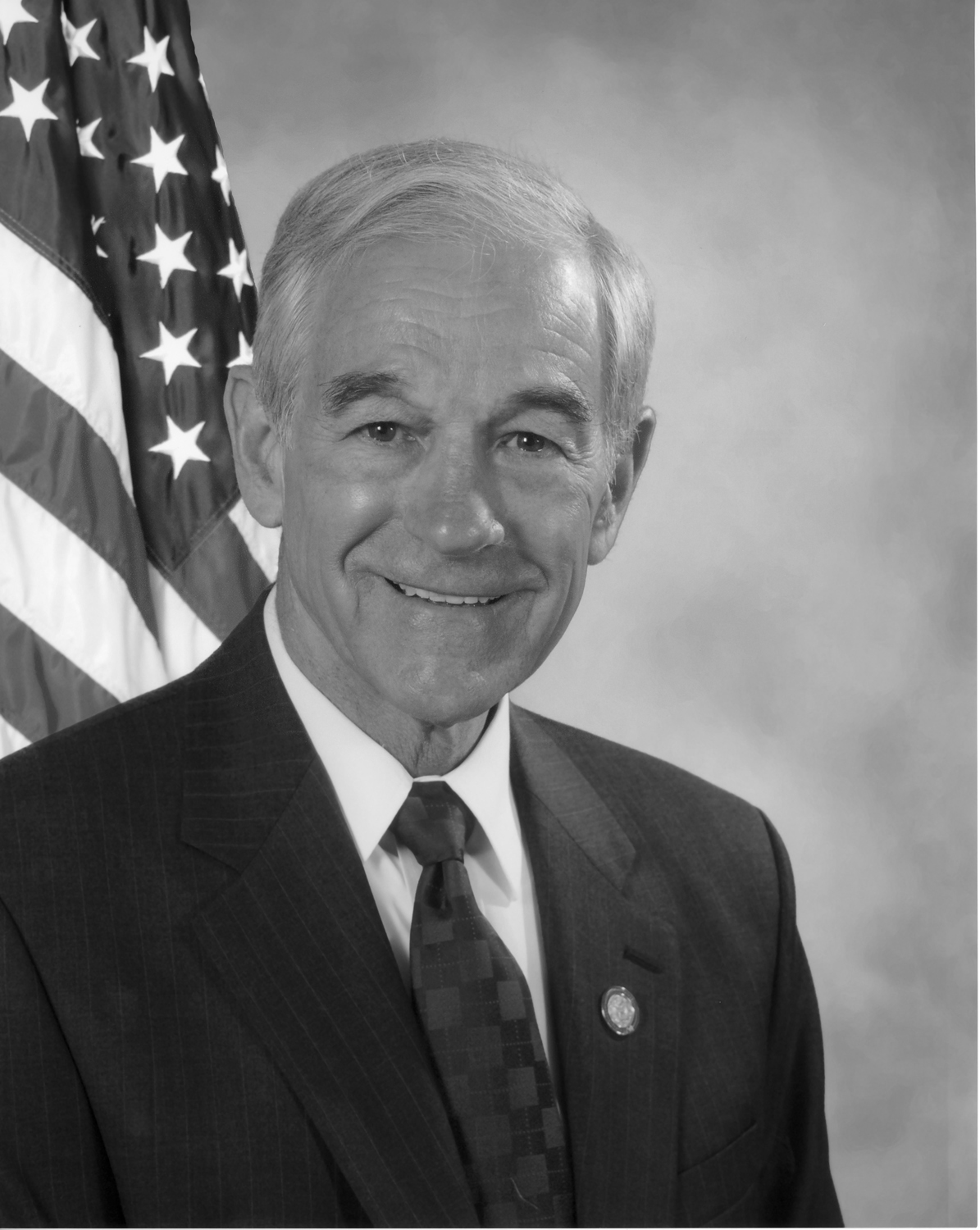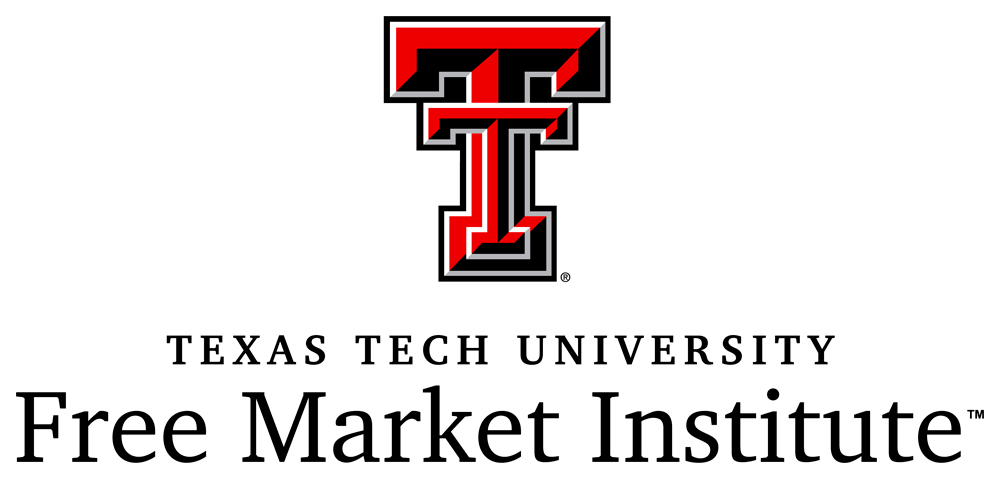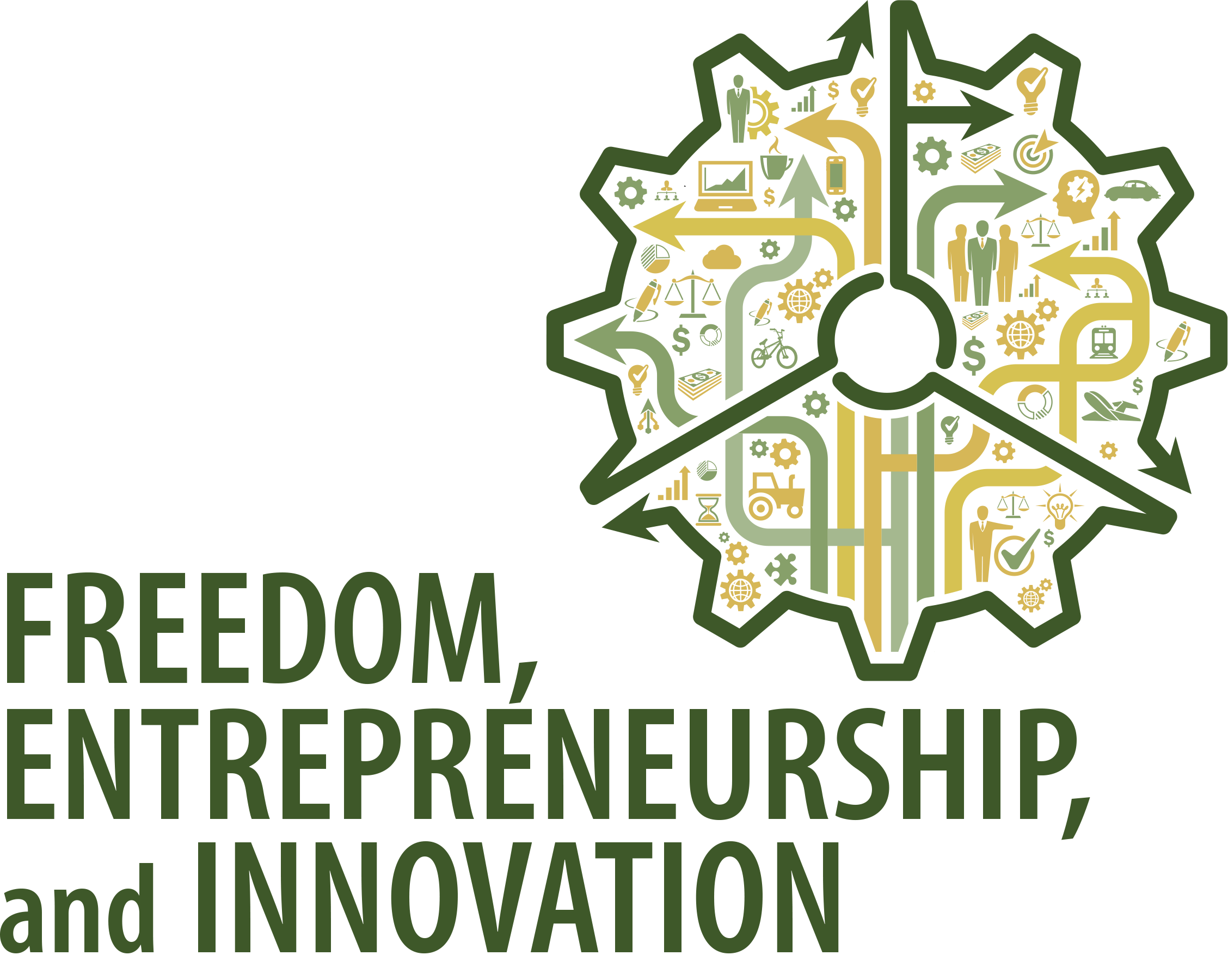Event Archives
FMI Public Speaker Series
November 9 — Rockin' the Wall: How Music Ripped the Iron Curtain
October 8 — Markets vs. Government: The Importance of Freedom
September 14 — The Myth of Middle-Class Stagnation
April 30 — Crisis and Leviathan
March 6-7 — Freedom, Entrepreneurship, and Innovation
February 17 — Economics and Entrepreneurship
Rockin' the Wall: How Music Ripped the Iron Curtain — November 9
On the 26th anniversary of the fall of the Berlin Wall, the Free Market Institute and the College of Media and Communication at Texas Tech University co-hosted a viewing of the film Rockin' the Wall. Rockin' the Wall is the compelling story of rock and roll's part in bringing down the Berlin Wall and smashing the Iron Curtain. The story is told from the perspective of musicians who played at the time, and from survivors of the communist regimes who recalled the influence of rock music in building resistance to the stifling cultural and intellectual influence of communism.

The event also featured commentary from Prof. Larry Schweikart, who is a professor of history at the University of Dayton and producer of the film. Prior to coming to academics, Prof. Schweikart was a rock drummer for several bands, one of which reached the big-time concert level as an opening act for several popular groups. His commentary provided additional intellectual context for the role that music played in changing attitudes toward individual freedom of expression and its ultimate role as a factor influencing broader institutional change.
Markets vs. Government: The Importance of Freedom — October 8
Ron Paul, Former U.S. Representative from Texas, visited Texas Tech University to deliver a public lecture addressing the role of markets government in the United States. Dr. Paul's remarks focused on a wide range of public policy issues including tax and fiscal policy, the scope of federal regulatory policy and monetary policy as they impact the prospects for long-term economic progress.

Dr. Paul argued for a return to the principles of limited government expressed in the United States Constitution, particularly the need to rein in federal spending and to limit the scope of federal regulatory powers. He also addressed the role of the Federal Reserve in fostering excessively easy monetary policy, which contributed to the economic and financial crisis of late 2007 and early 2008.
The Myth of Middle-Class Stagnation — September 14
Donald Boudreaux, Martha and Nelson Getchell Chair for the Study of Free Market Capitalism at the Mercatus Center at George Mason University, visited Texas Tech University to deliver a public lecture addressing popular claims of stagnation in living standards since the 1970s for middle-class residents of the United States.
Prof. Boudreaux summarized the key arguments offered by proponents of the stagnation thesis and also addressed the difficulties associated with the various methodologies for measuring changes in the cost of living. To counter the arguments presented in favor of the stagnation thesis, Prof. Boudreaux demonstrated that the various methods for measuring changes in the cost of living, when applied to identical time periods, often produce significantly different results.
Seeking an alternative measure for assessing changes in living standards, he, instead, demonstrated the significant gains that have been made in terms of the labor time required at the average wage to earn enough income to consume a wide range of consumer products and services. In making these comparisons across time, Prof. Boudreaux's analysis also emphasized the significant benefits that product innovation have imparted to consumers, which are not captured by standard, aggregated cost of living measurements. Rather than the pessimism expressed by many commentators based on only the very modest increases in average nominal wages since the 1970s, Prof. Boudreaux presented an optimistic outlook on the potential for the entrepreneurial market process to deliver sustained and widespread benefits for consumers.
Crisis and Leviathan — April 30
Robert Higgs, Senior Fellow in Political Economy at Independent Institute, visited Texas Tech University to deliver a public lecture discussing themes from his publication, Crisis and Leviathan: Critical Episodes in the Growth of American Government. The Institute for the Study of Western Civilization at Texas Tech University co-sponsored this public event.
Following the formal remarks from Dr. Higgs, Tevi Troy, President at American Health Policy Institute and Adjunct Fellow at Hudson Institute, offered commentary that focused more specifically on the role that weather crises play in legitimizing the expansion of the scale and scope of government power. Both Dr. Higgs and Dr. Troy were participants in a joint research program that explores the possibility of economic and political crisis in the United States and proposes feasible policy changes that could be implemented in the event of crisis.
Freedom, Entrepreneurship, and Innovation — March 6-7
The Free Market Institute (FMI) and the Institute for Humane Studies (IHS) co-hosted an IHS On-Campus Education Program as part of their Weekend Exploring Liberty series. The program, titled Freedom, Entrepreneurship, and Innovation, brought together students from Texas Tech University and universities across the state of Texas for lectures and discussion on topics including: economic freedom and political ideology, microcredit and innovation in developing economies, the myths of foreign aid, and the economic role of the state, among other topics.
Taming Leviathan — March 3
Peter Boettke, University Professor of Economics and Philosophy at George Mason University, delivered a public lecture discussing the history and consequences of changes in attitudes toward public administration that grew out of Progressive Era ideology.
His remarks focused on how the method and practice of economic science has developed as a tool to loosen constraints on the scale and scope of government power over the last century. He addressed the sustainability (or lack thereof) of the current institutional arrangements that accommodate continued growth of government power in the United States and other Western democratic states.
Economics and Entrepreneurship — February 17
Israel Kirzner, Emeritus Professor of Economics at New York University, visited Texas Tech University to deliver a public lecture discussing entrepreneurship and competition theory with an emphasis on its implications for public policy. The event, co-sponsored by the Jerry S. Rawls College of Business Administration, also featured commentary from Shelby Hunt, Jerry S. Rawls and P.W. Horn Professor of Marketing at Texas Tech University, and Edward Stringham, Associate Professor of Business Economics at Texas Tech University.
[Back to Upcoming Events] [Back to Top]

Free Market Institute
-
Address
Texas Tech University - Box 45059 - Lubbock, TX - 79409-5059 -
Phone
806.742.7138 -
Email
free.market@ttu.edu

